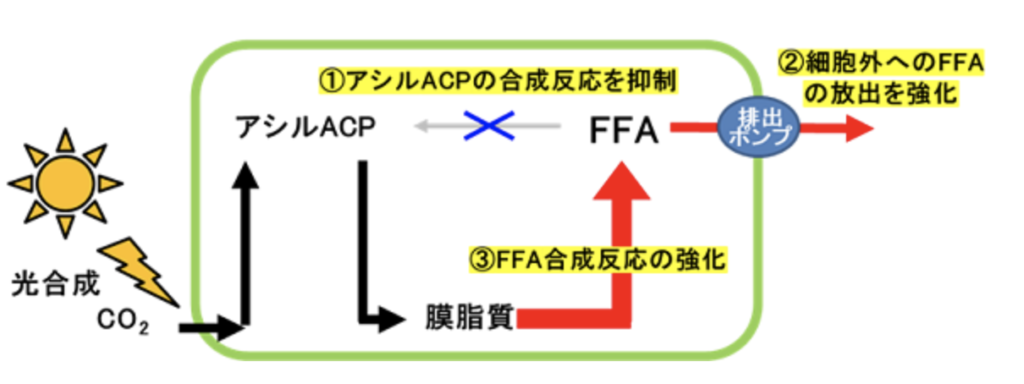https://www.nedo.go.jp/news/press/AA5_101632.html
A research team, consisting of Taisei Corporation, Saitama University, Chubu University, and Kazusa DNA Research Institute, succeeded in producing microalgae that produce free fatty acids outside the cells without introducing foreign genes, by suppressing or enhancing the expression of specific genes in the cyanobacterial strain Synechococcus elongatus PCC 7942.
Conventional algae biofuel production involves collecting and drying cultured microalgae and then extracting the fuel material accumulated in the cells with organic solvents. However, this process accounts for more than 50% of the total energy consumed in the production process, and reducing energy consumption is an important issue for practical application.
The extracellular production of FFA was made possible by suppressing the synthesis reaction from FFA to acyl-ACP using genetic modification technology and enhancing the reaction to generate FFA from membrane lipids and the function to release FFA to the extracellular space.
The FFA production capacity per dry bacterial weight of the produced algae was 31 mg-FFA/g-DCW per day, which is moderate compared to intracellular oil-producing algae (production capacity converted as FFA per day: 10 to 120 mg-FFA/g-DCW). However, the extracellularly produced FFA can be easily recovered, and the cultivated algae can be continuously utilized for fuel production, thus reducing the energy and costs associated with cultivation.
Taisei Corporation and others will further improve the production capacity of the extracellular FFA-producing algae developed this time, construct an algae biofuel production system, and conduct demonstration tests to promote the spread and expansion of algae biofuel and contribute to the realization of a decarbonized society.


